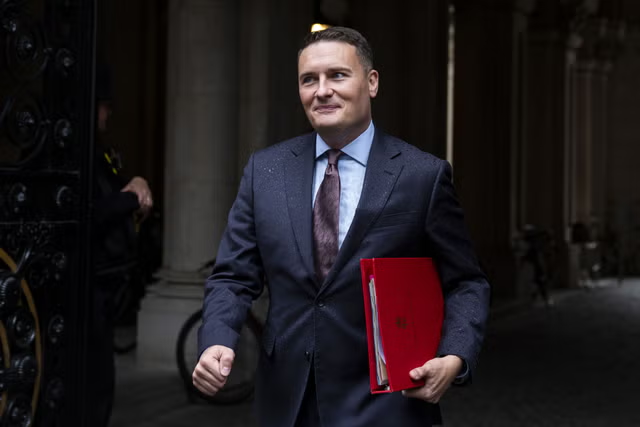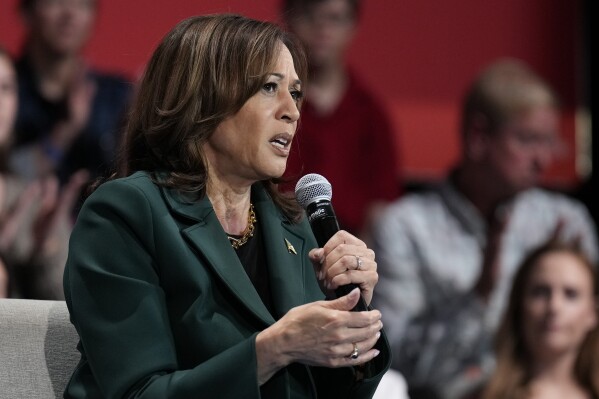Some mixed news for Rachel Reeves with one week to go until her Budget… and, on balance, it’s encouraging.
First, the parlous state of the “in-year” public finances was confirmed with the announcement that the government borrowed £16.6bn in September – the worst September since such records began in 1993, excepting only the pandemic year of 2021. Although this was not as bad as economists feared, it was still above what the Office for Budget Responsibility had been expecting on the basis of its last forecasts, suggesting the “black hole” identified by Reeves is real.
Second, the International Monetary Fund boosted its growth forecast for the UK for 2024 to 1.1 per cent, up from 0.7 per cent; it will be 1.5 per cent in 2025 (unchanged). That more fundamental factor gives some small comfort to Reeves as she approaches her first Budget.
Why is borrowing so high?
Because both this government and its predecessor have raised less and spent more than envisaged. The Conservatives, for example, cut national insurance contributions twice and pinned their hopes on hopelessly unrealistic public spending plans. They also postponed the implementation of pay rises for train drivers and doctors that had been recommended by the independent pay review boards. It’s true that Labour chose to honour those commitments soon after they came to power to restore industrial peace and stem the trend of medics emigrating and quitting the NHS. But it was still a political choice, and it represents about £9bn a year out of the £22bn hole.
What does it mean for the Budget?
A larger-than-expected GDP helps Reeves meet her self-imposed fiscal rules, and eases the pressure to hike taxes and cut public spending – a bit. We can expect some smaller important projects to be announced, or re-announced.
Will taxes still be going up?
Very much so. The package is widely expected to see some £40bn in tax rises and cuts to public spending. She has repeated her well-known guarantees on taxes on “working people” – income tax (or at least income tax rates), VAT, and national insurance, as well as freezing corporation tax rates. In all, those taxes raise about 75 per cent of all revenue, and logic dictates that if you’re not able to raise big taxes by a little, you will instead have to raise the smaller taxes by a lot. That means changing measures such as capital gains tax, duties, and restricting tax breaks for businesses, pensioners and savers.
Some quite fiendish moves could extend to unrealised capital gains declared in death (ie different to inheritance tax), and removing loopholes on farmland and business assets that are abused and allow rich people to avoid tax. Fuel duty, car tax, air passenger tax, tobacco, gambling and alcohol duties and stamp duty may rise sharply.
Even so, Reeves will probably still have to move stealthily on personal taxes by further freezing the personal tax thresholds until the end of the decade and raising employers’ national insurance contributions, either on wages or contributions to staff pension pots, or both.
Will it work, economically?
It’s going to be difficult to honour the spirit of the manifesto while improving public services, and making the UK attractive with such a restrictive fiscal stance. Securing the fastest rate of sustained growth in the major G7 economies looks like a stretch.
On the plus side, Reeves will create the anti-inflationary environment for the Bank of England to push interest rates lower, faster.
Will it work, politically?
It could be the opportunity for another “reset”. The first Budget of any new government is its best opportunity to set out its plans, explain why it is doing what it is doing and convince the public that the proposed changes will in due course make them better off. The pain may then be better understood, and judgement at least reserved.
Also possible is that the Budget goes wrong, as George Osborne found out. In 2012 he revealed what came to be known as the “omnishambles Budget”. Like Reeves, he had to raise some money and, for presentational and political reasons, preferred to avoid the more obvious targets, eg hiking VAT. So, like Reeves, he went for superficially easier moves, such as VAT on warm foods – a “pasty tax” that collapsed under the weight of ridicule.
Reeves’ problem is similar, and even more pernicious. As things stand, Reeves’ Budget looks likely simultaneously to upset almost every well-entrenched interest group – pensioners, landlords, employers, the “white van man” (petrol and diesel duty), and anyone who fantasises about inheriting a fortune from their parents. Whatever its fiscal merits, Reeves’ Budget is bound to be unpopular, and could very well unravel.
Disclaimer: The copyright of this article belongs to the original author. Reposting this article is solely for the purpose of information dissemination and does not constitute any investment advice. If there is any infringement, please contact us immediately. We will make corrections or deletions as necessary. Thank you.



